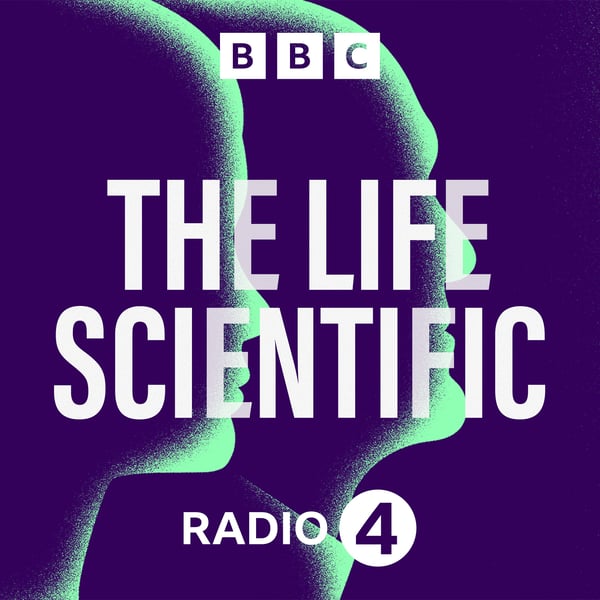Anil Seth on consciousness
The Life Scientific
BBC
4.6 • 1.4K Ratings
🗓️ 16 June 2015
⏱️ 38 minutes
🧾️ Download transcript
Summary
Transcript
Click on a timestamp to play from that location
| 0:00.0 | In the recent film X Mackinna, one character says to another about Ava, the artificial intelligence humanoid, |
| 0:06.5 | the challenge is to show you that she's a robot and see if you still feel she has consciousness. This is the kind of question that my |
| 0:14.8 | guest today thinks about for a living. Anul Seth is professor of |
| 0:19.2 | cognitive and computational neuroscience at the Sackler Center at the University of Sussex, where he studies consciousness. |
| 0:27.0 | His research has taken him in all kinds of directions, from reading philosophy to computing and virtual reality and mapping the brain. |
| 0:35.4 | As well as running the interdisciplinary center and carrying out experiments that test ideas |
| 0:39.9 | about consciousness, Anleseth has co-written a popular book, The 32nd Brain, and was the consultant |
| 0:46.8 | on Eybenders, the winner of the Junior Royal Society Book Prize in 2014. |
| 0:51.2 | Anleseth, welcome to the Life Scientific. Thanks, Jim. You've been arguing |
| 0:56.0 | throughout your career that science is the way to understand consciousness, but many would say |
| 1:01.9 | that it's too big a question or even beyond the remit of science and maybe it should be left to the philosophers. |
| 1:08.0 | Well, the philosophers have had a good go at it, really. |
| 1:12.0 | philosophers have been thinking about consciousness for forever. |
| 1:15.0 | And I'm not saying that science by itself can answer these big questions about how consciousness happens. |
| 1:21.0 | But I remember my friend saying some time ago that we should always listen to the questions that philosophers ask, but we should rarely listen to their answers. |
| 1:30.0 | Philosophy is very good at identifying what it is we're trying to understand and it can keep |
| 1:36.4 | us conceptually honest. |
| 1:38.6 | But consciousness is above all, it's a natural phenomenon, it's something that happens as a result of a particular |
| 1:43.8 | organization of matter of biological matter. And the tools of science can be powerfully productive |
| 1:50.0 | and unraveling these kinds of natural mysteries. So I think science and philosophy and even the humanities can work together, need to work together |
| 1:58.0 | to get to the bottom of what remains one of the big central mysteries of life. |
| 2:03.8 | You've been curious about consciousness since you were a boy. |
... |
Please login to see the full transcript.
Disclaimer: The podcast and artwork embedded on this page are from BBC, and are the property of its owner and not affiliated with or endorsed by Tapesearch.
Generated transcripts are the property of BBC and are distributed freely under the Fair Use doctrine. Transcripts generated by Tapesearch are not guaranteed to be accurate.
Copyright © Tapesearch 2025.

